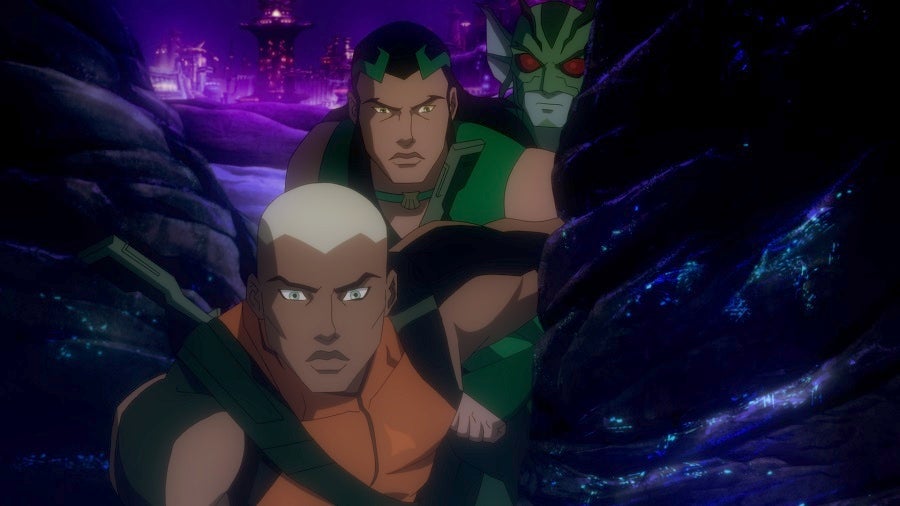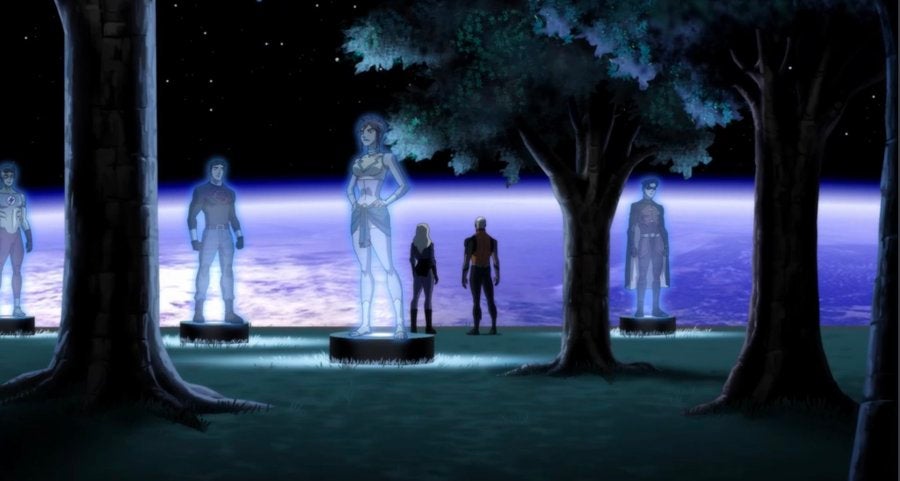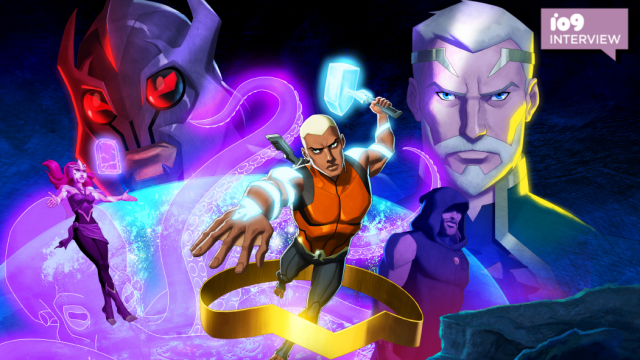In DC and Marvel’s comic book worlds, the concept of time and ageing is basically nonexistent until it needs to matter, like for a particular AU. For the many adaptations featuring these heroes, animated or otherwise, that same ethos largely holds true: these characters exist in a nebulous space where they’ve certainly had experiences that have helped them grow as people, just don’t ask how long these adventures have been going, or specifically how old anyone is. Time doesn’t matter until it needs to matter, and even that can be shaky at best.
For HBO Max’s (formerly Cartoon Network’s) Young Justice, time is key to the series in a few ways. Every episode has time stamps, and each season opens with a jump forward in time that helps widen the scope of the show’s world, in addition to putting the show’s universe in the relative present of our current world. Rather than dance around time or keep its characters eternally young, Justice has its characters age, with some of them either approaching young adulthood or already having families of their own.
For the current season, Phantoms, that time is weighing on the surviving members of season one who served as the show’s core cast — Nightwing (formerly Robin), Tigress (Artemis), Miss Martian, Superboy, Zatanna, Rocket, and Aquaman (Kaldur’ahm, the Aqualad who took his mentor’s mantle at the start of season three). As a result, Phantoms is more reflective compared to the earlier seasons, and when Gizmodo spoke to showrunners Greg Weisman and Brandon Vietti about this, both men felt that now was the time for the characters to look back on their tumultuous, action-packed lives. “For the original team, they’ve been at this for a decade,” acknowledged Weisman. “As we broke the season down, it felt natural that this would really be about the core characters looking back on their lives and really feel that passage of time.”


Previously, seasons of Young Justice would have one continuous overarching story, but Phantoms is divided into smaller arcs where a particular character from the original cast is given a handful of episodes dedicated to themselves, along with a villain to face and a small supporting cast of other heroes to join in on the fun. Each arc has a different vibe and tone; the season began with Miss Martian, Superboy, and Beast Boy investigating a murder on Mars; Zatanna’s arc closed out the first half of the season and focused on DC’s magical pantheon, including the Lords of Order and Chaos, and Doctor Fate during a series of escalating apocalyptic events. Now back from holiday break, the just-concluded arc focused on Kaldur in Atlantis during a sudden attack by Ocean Master, followed by the sudden arrival of Vandal Savage’s grandson Arion, the original ruler of Atlantis when it was previously above ground.
Kaldur’s arc eventually shifted to him and a team of Atlantean heroes going on a Raiders-esque artefact hunt, but the big point of the story was to put a spotlight on the former Aqualad and his inability to focus on his emotional well-being. Like his friends, he’s had his fair share of stresses, such as having leadership foisted on him multiple times, and later choosing to go deep undercover with his father Black Manta before fighting and imprisoning him. But the character’s always pushed ahead for the sake of saving the world, and as we learn through flashbacks, it’s how he kept his family afloat growing up. Artemis said back in season two that Kaldur had a “very messed up head,” and this arc sees his loved ones — particularly his boyfriend Wyynde — become more open in their desires for him to take time off as the stress of everything is clearly affecting him.
This week’s episode, “Leviathan Wakes,” serves as the closer to Kaldur’s story, and was written by his voice actor, Khary Payton. Though the episode serves as the voice actor’s first official writing credit, he and Weisman wrote a script for a spinoff series called “Black Manta’s Celebrity Hot Tub,” wherein the villain (also voiced by Payton) had a Conan-esque talk show featuring characters from Young Justice, like Blue Beetle and Black Lightning (he is, you guessed it, also voiced by Payton). With Payton writing for the series proper, both men praised him for successfully managing to nail the show’s tone. “He was in the writers room with us [Greg and Brandon], plus fellow arc writer Mae Catt from the beginning,” revealed Weisman. “A director for a particular episode would also be there in the room, and Khary didn’t really need any help or guidance from us.”

Young Justice’s exploration into its characters’ mental health first took shape in its first season with the episode “Disordered.” Following the events of the previous episode, wherein the then-teen heroes all wound up traumatized after a psychic training exercise, Black Canary sat each of them down for a therapy session. Exploring the psyche of the show’s characters has “always been a part of the plan,” said Vietti, and one of the ways the show is unique among other superhero series. In regards to Phantoms putting a greater emphasis on this through not just Kaldur’s arc, but a season-long storyline involving Beast Boy not willing to address his own trauma, Weisman revealed how this came about. In the period where Outsiders had finished production and a renewal for season four hadn’t been given yet, he was part of a panel at a con where a veteran with PTSD asked why there weren’t many shows that really reflect his experience. Thus, the topic has been given a greater focus in the show than in previous seasons. Beyond Beast Boy and Kaldur, Superboy finds himself in a limbo between life and death, and trying to keep a grip on his sanity while trying to find a way back to the mortal plane. Even villains like Ocean Master are reckoning with what’s happened to them when they were members (or pawns) of Vandal Savage’s supervillain cabal dubbed the Light.
Everyone has good mental health days and bad mental health days, and the same is true for superheroes. It’s for that reason that, like with Beast Boy’s season-long struggle with PTSD, Kaldur still has the emotional journey ahead of him. “Wakes” ends on him taking a break from heroism, with Arthur and former teammate Lagoon Boy taking over in his absence. (All three will now share the Aquaman title going forward.) For the episode’s post-credits stinger, Kaldur finds himself finally willing to admit that he’s not OK. It was important, said both men, for the arc to not conclude on him being magically cured of his tendency to self-sacrifice. “Not everything gets wrapped up in a neat little bow after 30 minutes,” said Vietti. “It’s not true to life, and M’gann had to learn that lesson back in season one… we wanted to do right by our characters.”
New episodes of Young Justice: Phantoms premiere Thursdays on HBO Max.
